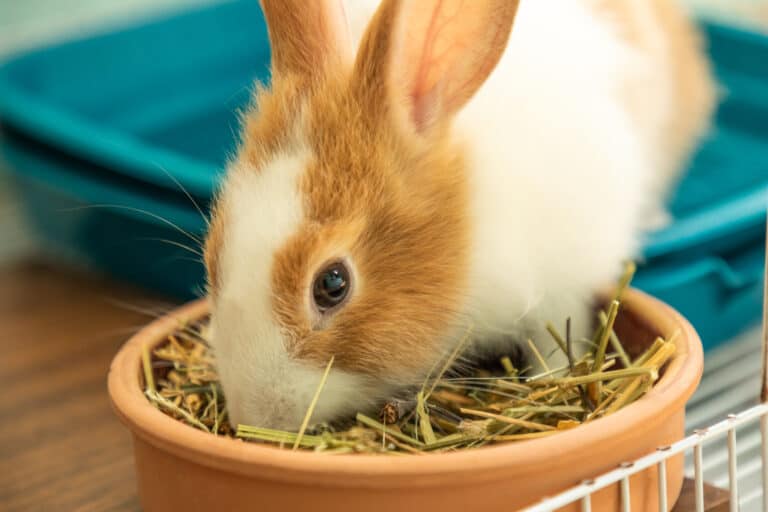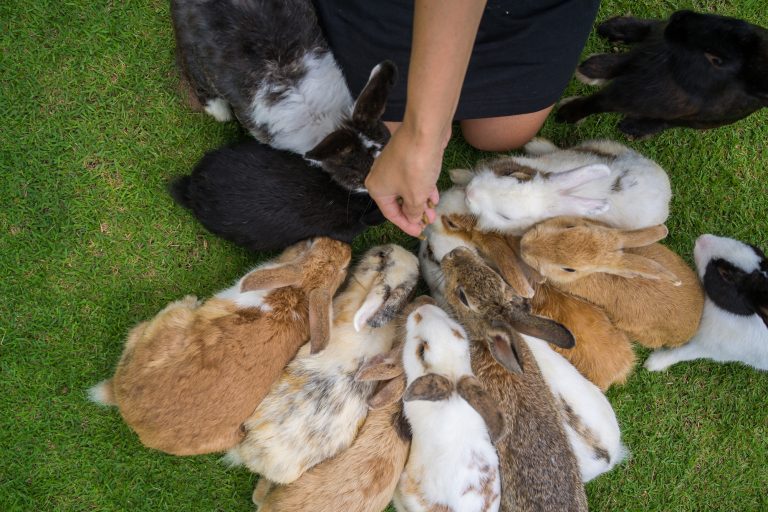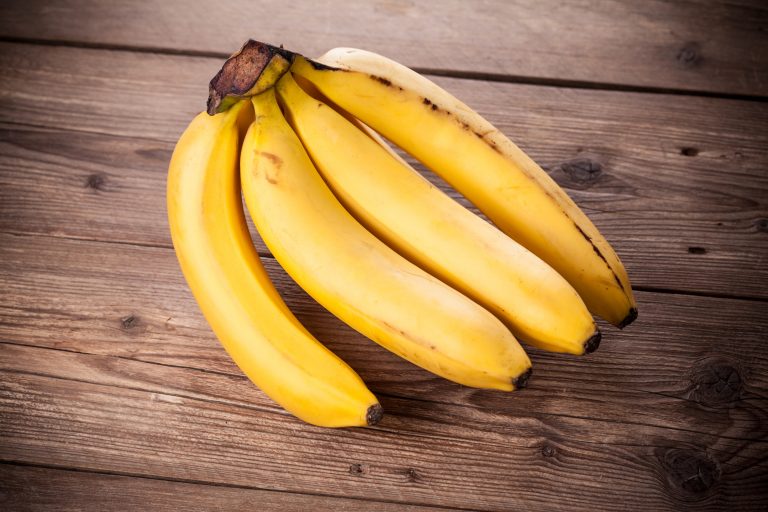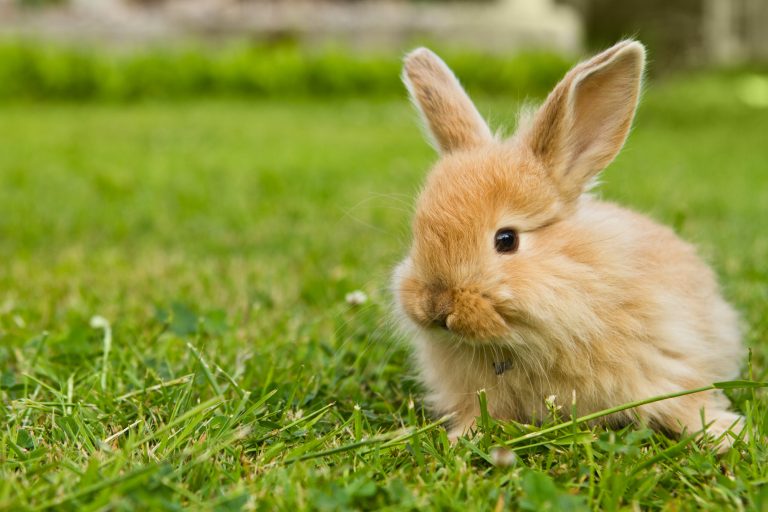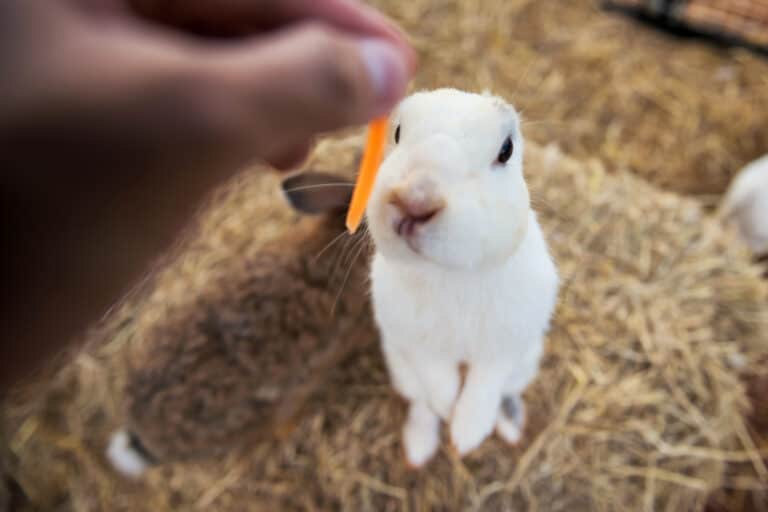What Herbs Can Rabbits Eat? 7 Options They’ll Love

Wild rabbits instinctively know what to eat, and since they have access to a wide range of plants, they can feed on those that best provide for their nutritional needs. A pet bun doesn’t have that option but instead will eat the food their humans offer. That’s why it’s important for you, their fur mom or dad, to know what will balance out your pet’s diet. Herbs are healthy additions to your bun’s meal. But first, you need to determine what herbs your rabbit can eat.
What Types of Herbs to Give Your Rabbit?
Herbs add variety to your bun’s meals. Also, they help provide him with all the nutrients he needs. Moreover, unlike fruits and root crops, you don’t need to ration his servings since these edible greens don’t usually cause digestive issues to rabbits.
If you’re looking to add safe herbs to your pet’s feedings, you have two options of what type of herbs to serve.
Fresh Herbs for Your Rabbit
Rabbits need generous servings of leafy green veggies daily. Most herbs count as leafy greens, so you can include the fresh version in your pet’s meals.
Fresh herbs are readily available. You can buy them at your local grocery store, or wherever fresh produce is sold. You may even want to grow them yourself. But if you have limited space in your backyard, even a large flower pot will be enough to create an herb garden for your bunny.
Dried Herbs for Your Bun
The dried version of the fresh herbs you feed your bunny is as yummy. They can also act as flavoring to make your bun’s hay more enticing. Sprinkling a handful of dried herbs can encourage him to munch his hay, which is great because eating grass helps your pet maintain a healthy digestive system and prevent dental issues.
Dried herbs are typically found in grocery stores. But if you’re growing your own fresh herbs, you can simply dry part of your produce. Check out some online stores for sources of dried herbs for your rabbit.
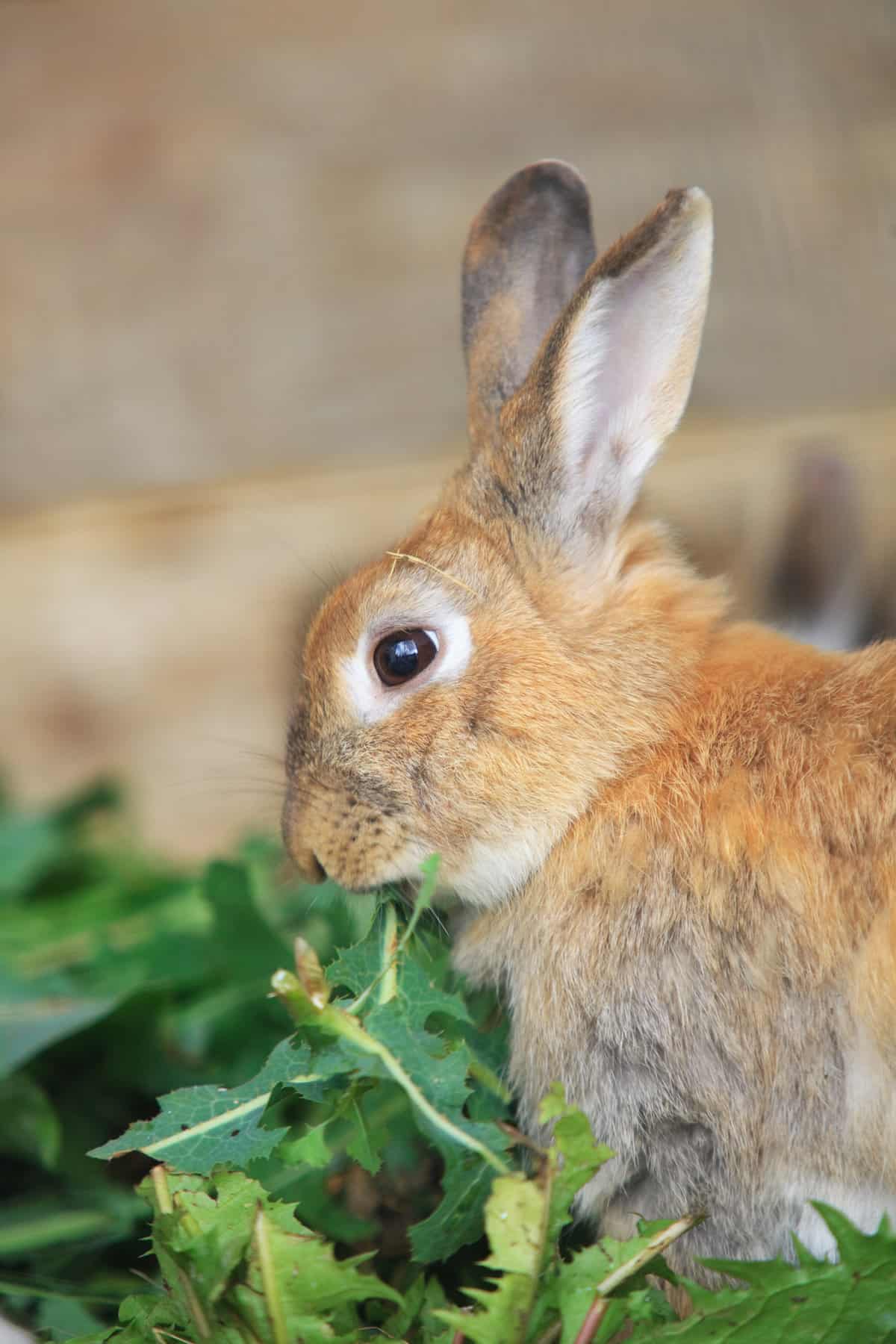
7 Herbs Rabbits Can Eat
Various herbs are safe for your bunny. Here are the most common ones:
1. Cilantro
Rabbits find the scent of this herb very enticing. You can feed both the leaves and stem of cilantro (or coriander) to your pet.
This aromatic herb contains phytochemicals that boost a bun’s immune system, aid in digestion, reduce stress, and relieve the symptoms of urinary tract infection. It is also a great source of vitamins and minerals, such as Vitamin K, iron, potassium, and copper.
As a general guideline for how much cilantro to feed your rabbit – Most rabbits love cilantro, so don’t be surprised if your bun gobbles up his serving, which can be 1/4 – 1/2 of their cup of leafy greens.
2. Basil
Basil is another excellent source of phytochemicals for your bunny. Chemicals like salicylic acid and caffeic acid are also present in this herb, giving basil microbial and anti-inflammatory properties. As such, basil can provide mild pain relief.
However, because of the herb’s pungent aroma and sharp flavor, not all rabbits will gravitate towards it. Our New Zealand bunny does not care for basil. The Holland lop would eat it, but it was not a favorite.
3. Parsley
Parsley is great for rabbits. It is a great source of vitamins, carbohydrates, antioxidants and even folic acid.
After cilantro, parsley is a favorite with our bunny.
The key is to offer a reasonable amount and not overdo it. I would recommend not letting herbs account for more then 50% of the leafy green veggies as part of your rabbit’s daily diet.
4. Mint
Mint is another healthy herb you can add to your bun’s diet. Not only is it yummy, but it also offers a wide range of vitamins and minerals. In addition, mint has medicinal properties that will benefit rabbits, especially those who are getting along in years.
The herb reduces inflammation and helps ease joint pains. You can give it to rabbits with digestive disorders, fever, and urinary tract infections.
5. Chamomile
Use this flower herb to relieve common health issues like stomach upsets, fever, and inflammation. In addition, because of its calming properties, chamomile can reduce anxiety in rabbits.
Chamomile tea makes an excellent eyewash for buns with weepy eyes and treatment for sore hocks because of its antibiotic, antifungal, and antimicrobial properties.
6. Echinacea
When it comes to boosting a rabbit’s immune system, echinacea easily makes it to the list. With its large amounts of antibacterial and antiviral components, it can combat infections and viruses. The herb works so well in battling infection and fortifying the immune system that many vets recommend making echinacea part of a rabbit’s regular diet.
7. Oregano
Oregano is another immune-booster for your bun. The herb has anti-inflammatory and antimicrobial properties owing to its geraniol and rosmarinic acid content. But not only do those two mentioned components fight infection and inflammation, they also help protect against carcinogens.
Like basil, however, this herb’s strong aroma and flavor may turn off some bunnies, so you’ll have to check whether your pet will enjoy nibbling on oregano.

How to Introduce Herbs to Your Rabbit
Although herbs are suitable for your fur baby, there are some things to remember before including these edible greens in his daily meals.
- Go slow: Rabbits have sensitive digestive systems, so don’t give a whole bunch to your pet in one go. Start gradually to allow his stomach to get used to the new addition. Likewise, your bun may need time to adjust to the taste of various herbs. Give only a small amount and slowly increase the quantity over the following days.
- Go fresh: Your bun may find fresh herbs more appealing than the dried versions. You can try adding the dried ones into his diet later on when he had gotten used to the flavor of the herbs. Be sure to wash the greens well in clean water before feeding to your pet.
- Go organic: Make sure the herbs contain no pesticides, herbicides, or insecticides. That’s why it’s best to give your bun the herbs you grow yourself so you can be sure no chemicals get into them. But if you don’t have the time or space to plant your own, there are plenty of sources of organically grown, pesticide-free herbs.
How Much Herbs Should You Give Your Rabbit?
Hay, preferably Timothy Hay, should make up a major portion of your bun’s diet. Some rabbit parents also give pellets to their fur babies. As such, the herbs you provide should be included in their portion of leafy greens.
To calculate the servings, give a cup of chopped leafy greens (which include the herbs) per 2 pounds of rabbit weight. You can give this in one feeding or spread it out over several meals for the day.
A lot of herbs are safe for rabbits. But if you have any doubts about these plants’ effect on your pet, don’t hesitate to consult your vet for advice.
More on Rabbit Diet
- Is Orchard Hay Good for Rabbits?
- The Best Lettuce for Rabbits: What Type Can They Eat
- Complete Guide to the Best Hay For Rabbits: Reviews & More
- What Can You Feed Wild Rabbits: A Comprehensive Guide
- Can Rabbits Have Cabbage? What You Need to Know!
We hope you enjoyed this post! If you did, will you give it a share or two 🙂 Thank you! ~from Every Bunny Welcome


